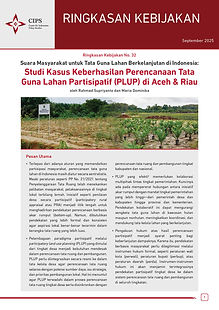Trade for Economic Recovery: Import Policies to Support Indonesia’s F&B Sector

Penulis

Felippa Amanta

Krisna Gupta
Food and beverage industry is one of the prioritized manufacturing sectors that can support Indonesia’s economic recovery and structural transformation post Covid-19 pandemic. In 2021, the sector contributed 6% of Indonesia’s national Gross Domestic Product and 20% of total exports to a value of $45.4 billion. The sector is dominated by micro- and small- medium enterprises and employs an aggregate of 4.6 million people, providing livelihood for many. However, the industry has experienced stagnating growth in the past two decades, particularly due to weak global value chain linkages.
This study provides two key takeaways from Indonesia’s food industry. Firstly, although the government often cites Indonesia’s downstream products to showcase Indonesia’s competitiveness in the food industry, the industry is dominated by palm oil related products. Indonesia is actually a net importer of food products if palm oil related goods are excluded from the trade statistics. Heavy reliance on the palm oil industry skews Indonesia’s global value chain dynamics toward forward linkages (exports of raw materials) with limited backward linkages (imports of raw materials to be processed further in the country). Palm oil products are less complex compared to types of final products of the food and beverage industry, and rely mostly on Indonesia’s climatic advantage. Given the different characteristics, it is important to distinguish the palm oil industries from the other processed food and beverage manufacturing industries, if Indonesia wishes to design its policy around increasing production complexity and improving domestic value added to its food and beverage industry.








































